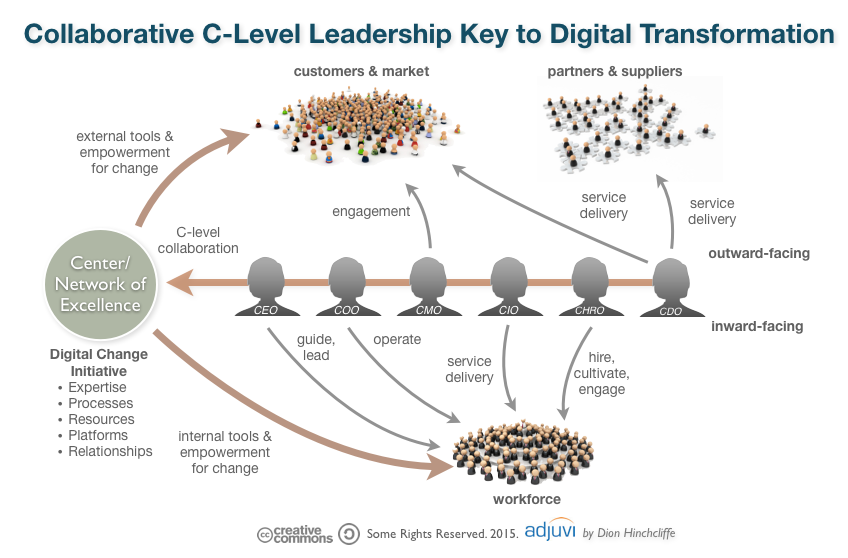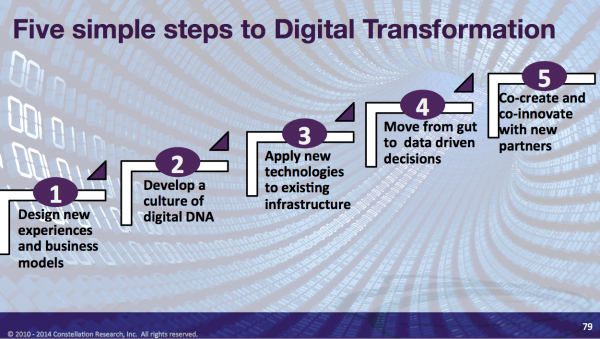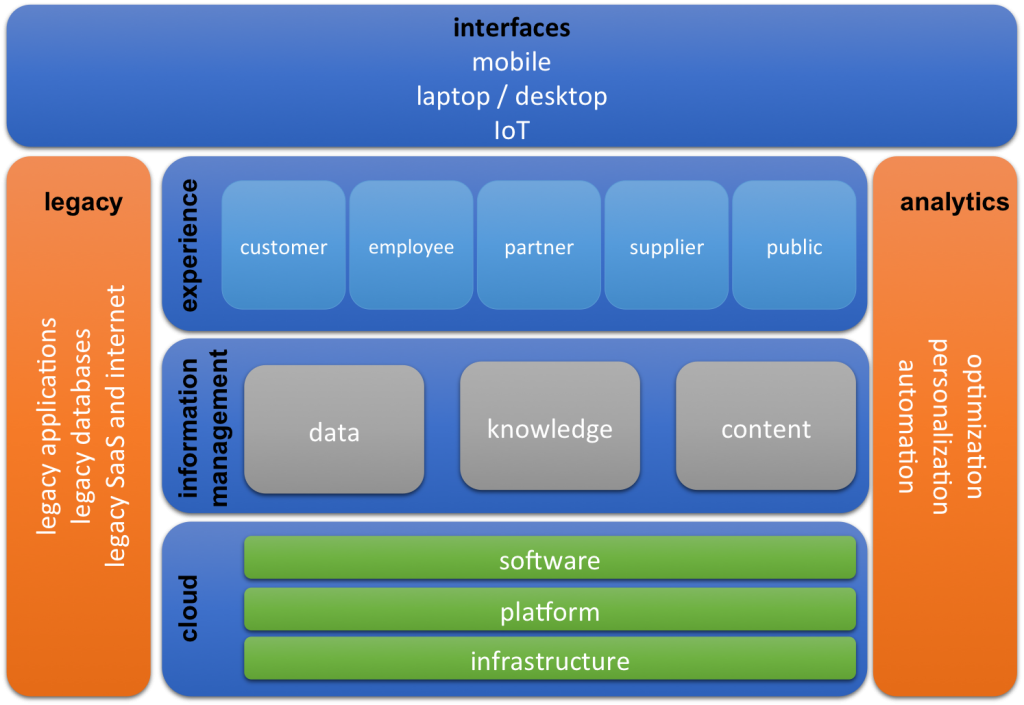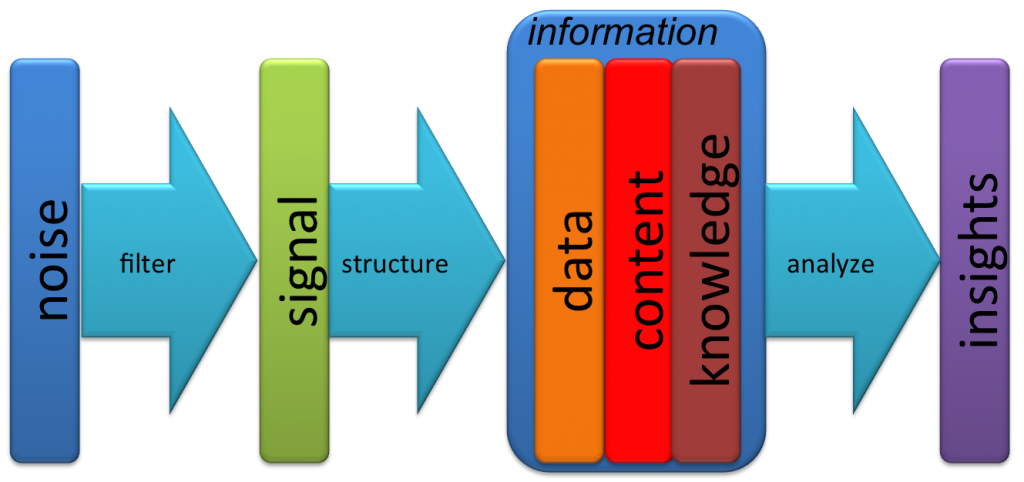-
Accor triple le chiffre d’affaires généré via la personnalisation temps réel
“Chez Accor, leader mondial de l’hôtellerie, l’expérience utilisateur multi-canal s’appuie sur une personnalisation temps réel pour l’emailing. Cela dope le taux de clic et les achats de nuitées. Le chiffre d’affaires généré via l’emailing est triplé par rapport à un échantillon test, sans aucune personnalisation.”
-
Le système de recommandation en temps réel d’Accor a généré en 2014 plus de 140 millions de recommandations, a multiplié par 1,5 le taux de clic, multiplié par 2 le taux d’achat de nuitées et par 3 le chiffre d’affaire.
-
Le processus de personnalisation et de ciblage est mis en œuvre en cinq étapes : collecte des données, éligibilité des offres, priorisation dynamique des offres, recommandation de l’offre à afficher et évaluation des résultats et auto-apprentissage.
-
chez Accor, tout a commencé comme souvent dans le tourisme, par la description du parcours utilisateur, défini en six étapes : rêver, chercher, réserver, séjourner, partager et fidéliser.
-
« Customer Hub », construit sur l’outil Siebel d’Oracle et contenant le détail de 43 millions de clients.
-
La qualité des données de ce Hub est le fruit d’une attention de tous les instants
-
-
What the Sharing Economy Takes
“Uber and Airbnb monetize the desperation of people in the post-crisis economy while sounding generous—and evoke a fantasy of community in an atomized population.”
-
The term “sharing economy†has been making the rounds for about a decade, but the phenomenon has roots in the 1990s: all of its trademark enthusiasms—the flattening of stodgy old hierarchies, the rise of peer-to-peer networks, the decentering of everything—were concepts imported into middlebrow culture by the likes of Thomas Friedman.
-
Collaborative consumption,†they wrote, “gives people the benefits of ownership with reduced personal burden and cost and also lower environmental impact
-
But the model isn’t blemish-free: there’s a real, if hard-to-measure, impact on housing availability and affordability in desirable cities.
-
Airbnb would rather we see it as a community, not merely commerce, even as it hastens the breakup of working-class neighborhoods in cities like New York and Los Angeles.
-
Uber drivers often complain about the low (and declining) pay and miserable conditions.
-
she gets $11 to $12 an hour after expenses (daily expenses like gas, not depreciation of the car), which is around the twenty-fifth percentile of the city’s hourly earnings, though about in line with typical taxi-driver pay. That’s a sharp contrast with the $35-an-hour rate that was dangled in front of her when she signed up.
-
Of course, “sharing†entrepreneurs aren’t entirely lacking a utopian line, as Chesky’s exuberant language demonstrates.
-
Now, despite over five years of official recovery, the sharing economy offers some people, like cab drivers, the prospect of real wage cuts, and others, like people with a spare bedroom, a way to supplement stagnant incomes.
-
Many Taskers are people who had good jobs until the recession hit; as of last year, 70 percent had a bachelor’s degree, and 5 percent a PhD. Now they’re running around town fetching stuff.
-
The sharing economy looks like a classically neoliberal response to neoliberalism: individualized and market-driven, it sees us all as micro-entrepreneurs fending for ourselves in a hostile world
-
in the future, people will own whatever they want responsibility for. And I think what they’re going to want responsibility for the most is their reputation, their friendships, their relationships, and the experiences they’ve had.
-
-
How Leaders Can Address the Challenges of Digital Transformation
” In fact, it’s pretty safe to say there is more potential and opportunity in business than there has been in history. But over those ten years I’ve also seen far too many organizations struggle deeply as they grapple with how best to adapt today’s incredible advances to the way they work and do business. “
-
-
- Today’s CIO is in charge of developing the connected infrastructure for things like social business, digital workplace, digital business, etc., but not the human component.
- The CMO is in charge of connecting with customers via all available channels, but through vast digital infrastructure they largely do not create or own.
- The CHRO is in charge of employee engagement as well as approaches for recruiting, hiring, and performance management, but not the technology or non-employees.
- And the COO is in charge of getting results (efficiency, performance) from employees for the business.
-
But at the root of every major success story seems to be the effective working together of the C-Suite to holistically drive change in a more coordinated and integrated fashion.
-
No, it seems more agile than that and I mean that in the formal way of pods of teams coming together and using iterative approaches with fast feedback loops.
-
-
How to start the digital transformation initiative?
“I would like to add some thoughts on the “how-to†for starting the digital transformation initiative. Again to make it clear – the general consensus about the digital transformation is not to implement some “fancy†new technologies or to use social media as a new marketing channel. The digital transformation is about re-adjusting the corporate thinking towards a culture of digital DNA”
-
“Digital Transformation is the methodology in which organizations transform and create new business models and culture with digital technologies.â€
-
-
see one of the key traits of “digital profiency†in using digital data and insights a “foundation for digital business†decisions.
-
digital leaders like Burburry have fostered the exploration of the insights gathered around social interactions and social connectivity.
-
digital leadership is characterized by the understanding of the “dynamism and value inherent in (business) relationshipsâ€.
-
-
the establishment of a social platform within the organization is an important building block for the digital transformation initiative – as it provides an effective support for digital transformation strategy.
-
-
Stop Talking About Digital Transformation
“I have been talking about digital transformation for nearly four years now and began to write about the transformative power of data (what digital refers to) over 15 years ago (when I began to cover EFM at Gartner ‘member?). Why on earth would I want to stop talking about it now – when its finally reached the peak of the hype cycle and is beginning to be adopted?
Because its too limiting.”
-
Let’s talk about business transformation.
-
-
Data has taken front-and-center positioning among organizations’ plans and strategies for 2015 – and it is too limiting.
-
-
If we are to talk about a complete transformation of the business we need to also talk about content beyond marketing and about knowledge beyond service as well as we talk about data.
-
Let’s talk about business transformation.
-





